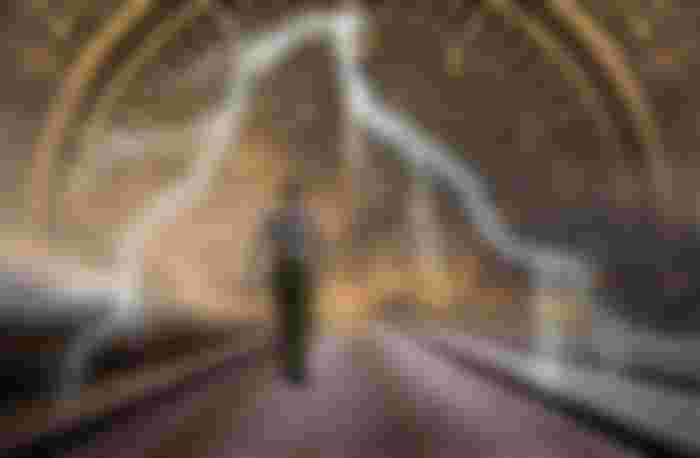What Does Time Mean To You And How Do You Define It
The thing about time is that it is something that people project onto a situation. People tend to see what they want to see in time, or what they are used to seeing. This is why time can be seen as a concept, that is constructed by human beings.
In addition, time tends to be perceived as linear, but this is not necessarily always the case. One can have the experience of time in which all events are perceived as simultaneous. Furthermore, time is a subjective experience, in which the perception of time can be different in different individuals.
Time can be seen as a continuum in which events occur and coexist in various combinations. However, this is a somewhat simplified view of time. Time is a vast ocean, that contains an inconceivable amount of phenomena, all of which are interconnected.
It is perhaps not surprising that time has been described as a "fourth dimension" in which we move through. Given its complexity, it is easy to see why one might be hesitant to define it.

Time As A Field Of Vision
Time is a mysterious thing. As a concept, it is difficult to deal with. As a dimension, it challenges our notion of what is meant by dimensions. Time is a dimension in which all things that are real appear and in which all things that are possible appear. Time can thus be seen as a kind of window in which anything that can be seen can appear and be examined. Time can be thought of as a "field of vision" through which the universe can be observed.
This means, that time can be conceived of in many different ways. It can be a process, through which things change. It can be a mode through which everything appears and through which one can observe the world. However, all of these views are reductive and none of them does justice to the complexity of time. This is what makes time such a difficult concept to grasp.
Time As An Interval Between Events
Time can be seen as the interval between two successive events. Two events appear and then they are perceived as separate. Time is thus the experience of a thing, that occurs between these two things. In this sense, time can be seen as an experience or an interval of time between two experiences. The notion of "between" is thus crucial to grasping time.
Time As An Experience
If one chooses to perceive it this way, then time can be seen as an experience. Time can thus be seen as the experience of being at a certain place, at a certain moment, between two things. This way of perceiving time is not as common, but it has its advantages. For instance, this way of seeing time permits the possibility of defining time in a way that is not reductionist and thus avoids the pitfalls of a category, that is not useful for describing the vast majority of what it describes. Experience is what one has and it is what one is.
Furthermore, this way of perceiving time can be useful for dealing with the vast quantity of phenomena, that time can mean. The notion of experience permits a certain kind of order to be derived from the chaos of time. Experience, as the word suggests, is a form of knowledge, that comes with the possibility of error. The important thing to recognize about experience is that it is not static. It is a dynamic thing, that is constantly in the process of changing.
The problem with trying to define time this way is that it can be difficult to determine what is meant by "between". One possibility is to simply make a choice and then see if anything looks different. If one chooses to do something, then it does not exist until one chooses not to do it. Time would thus be an interval of choice. However, this way of defining time is problematic, since time does not always permit us the luxury of choice.
Time As A Mode Of Being
If one chooses to define time in terms of being, then time becomes even more difficult to grasp. Time would then simply be the eternal now. The problem with this definition is that it fails to account for the changes, that have occurred in the past or the future. It also does not explain why these changes take place. If one chooses to define time as a "mode of being" however, then it becomes clear that time is not an interval between events, but rather a property of everything that exists.
Time And The Philosophy Of Science
The concept of time and change was a major preoccupation of the early modern philosophers, specifically with respect to the philosophy of science. The general consensus among the greatest thinkers of the period was that time does not exist. This was not based on any evidence, but rather a logical impossibility. A thing that exists is by definition unchanging and change is defined as a deviation from a thing that exists. No such thing as change, therefore, can ever really be observed or experienced.
A major tenet of early modern philosophy of science, however, was that the laws of nature do not dictate or regulate change. Change is an inherently human experience and the world is what it is because of human decisions. The early modern period saw the rise of a number of scientific methodologies, that were designed to understand the human impact on the natural world. The study of history was regarded as an important tool for understanding the present state of the natural world, for example.
As these ideas developed, so too did philosophy of science and an important theme, that emerged was what came to be known as the "new history." The "new history" was an effort to reconcile the philosophy of nature, which denied the existence of time, with the human experience of time through the study of history. The "new history" attempted to do this by focusing on the role of human activity in the production of historical change, rather than the study of nature as such.
The "new history" is thus most properly understood not as a philosophy of history, but rather as a philosophy of nature, or better yet, a philosophy of human history. Human history is a branch of nature, after all and thus the study of human history is a way to understand nature.
Thank you for reading.



Time is what is defined as continuity. I think it is the only thing that is infinite. This topic fascinates me. As a lover of science fiction and The Time Machine movies.